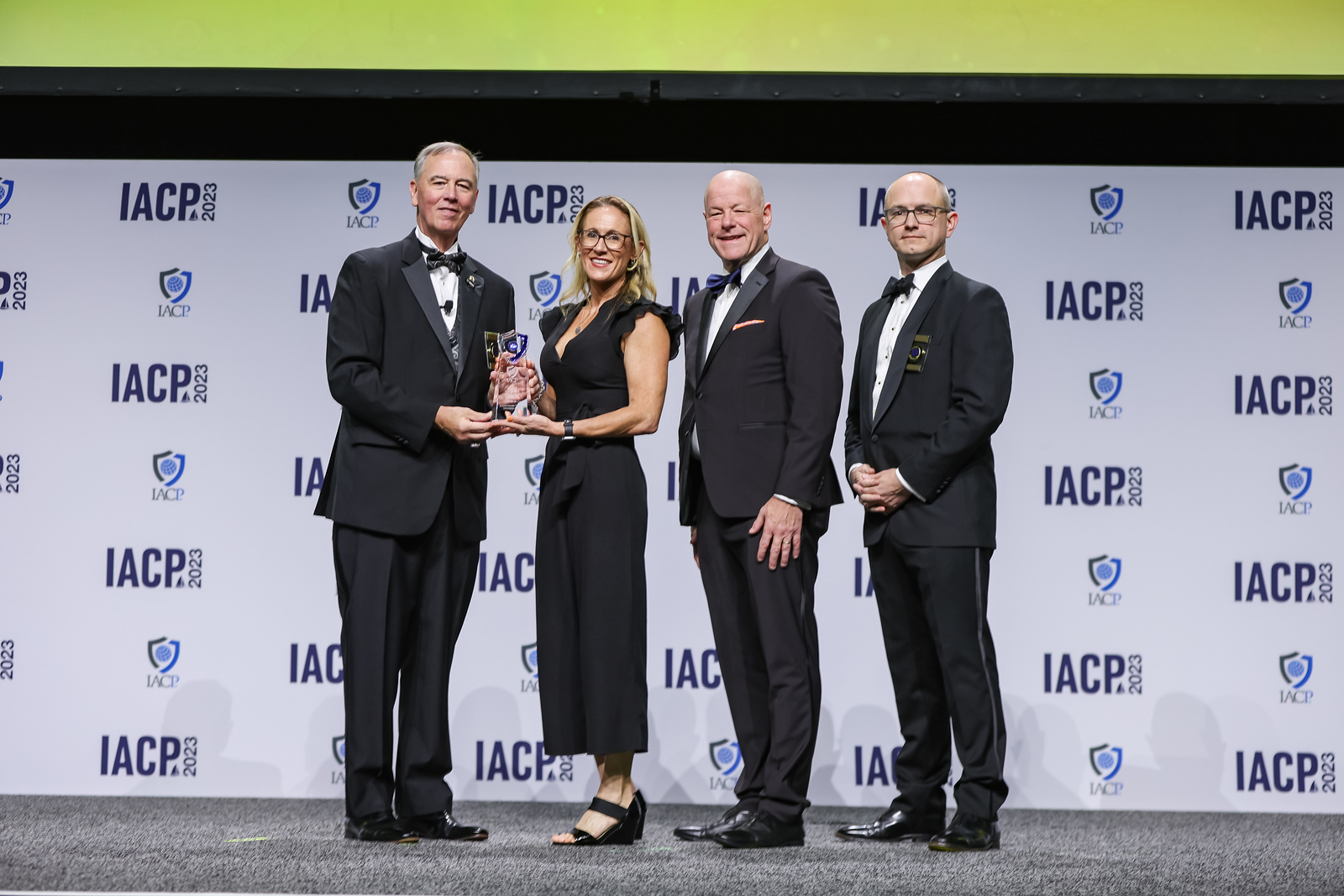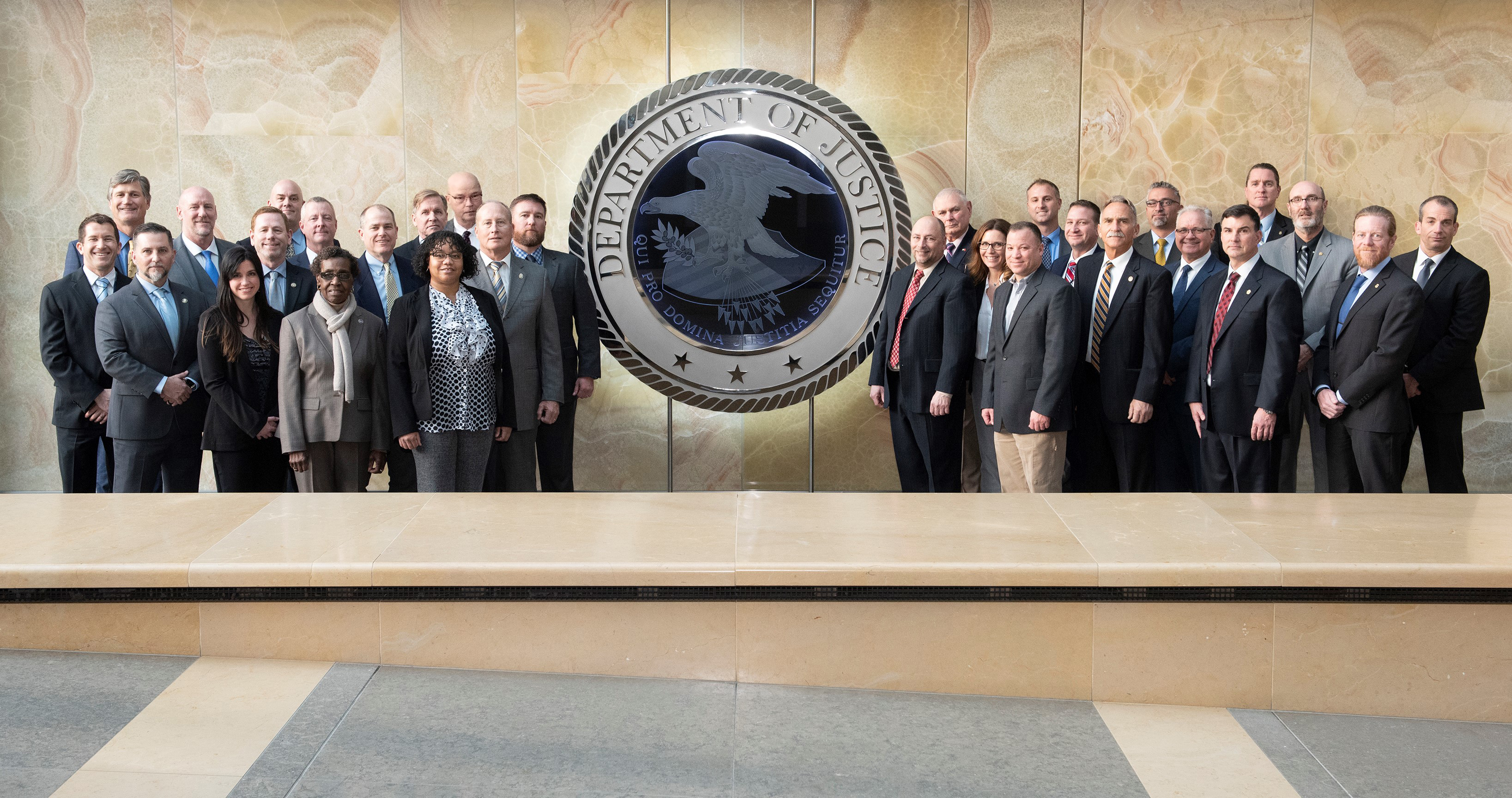IACP Leadership in Homeland Security Award
The IACP Leadership in Homeland Security Award honors excellence and significant contributions to overcoming United States homeland security challenges
The 2024 award nomination period is now closed. Complete the 2025 Awards Interest Form to receive information as it becomes available.
This award recognizes single agencies and multi-agency collaborative efforts that demonstrate significant contributions to information sharing and analytical work in the United States homeland security enterprise, and/or sound decision making during the preparation and execution of critical incident response, mitigation and recovery efforts resulting from acts of terrorism, and extremism in addition to natural or man-made calamity.
For further information, contact [email protected].
2024 Winner
United States Customs and Border Protection
The International Operation Advisory Directorate under United States Customs and Border Protection are deployed in over 80 countries. They have contributed to homeland security by providing unique training to employ best practices in foreign locations to increase government border security. They have acted in an advisory capacity to assist their host governments to conduct enforcement actions on terrorism, human trafficking, narcotics trafficking, and the irregular flow of migrants into the western hemisphere.
The Joint Security Program (JSP), Guarulhos (GRU), and the Police Liaison Officer (PLO) in Brasilia have worked with foreign government partners to ensure the identification and return to point of origin of subjects with nexuses to terrorism. Through their collaboration, JSP, GRU, and the PLO have been able to obtain critical intelligence that aid U.S. and foreign police agencies in arresting, deporting, investigating, prosecuting, and identifying subjects who have links to terrorism. The ability of the JSP and GRU to work with their foreign partners expands the strategic operation of combating terrorist organizations all over the world, increasing the security of the homeland.
2023 Winner
Arizona Counter Terrorism Information Center

In the year leading up to Super Bowl LVII, Arizona Counter Terrorism Information Center (ACTIC) partnered with the Counterterrorism Education Learning Lab (CELL) and federal, state, local, county, and municipal agencies to develop a specialized version of the U.S. Department of Homeland Security SAFETY Act certified Community Awareness Program (CAP) training to educate thousands on suspicious activity reporting across Arizona. ACTIC and CELL provided training to more than 16,000 personnel to identify and report suspicious activity to prevent acts of terrorism and enhance homeland security efforts in advance of Super Bowl week. ACTIC saw an increase in the quality of reports from members of the public, and investigators were better equipped to investigate the nature of the reported activity and stop situations from escalating. The CAP training was instrumental in mitigating terrorist and criminal activities and disruptions across the Arizona community and provided a streamlined and consistent message on suspicious activity reporting across multiple jurisdictions.
2022 Winner
United States Department of Homeland Security, Office of Homeland Security Investigations

Beginning in September 2021, Newark homeland Security Investigations Special Agents worked with national security partners to screen and vet nearly 16,500 Afghan evacuees temporarily housed at Joint Base McGuire-Dix-Lakehurst. This mission resulted in the completion of interviews of Afghan nationals considered subjects of interest to the counter terrorism and/or counterintelligence community. Agents effected the administrative arrest of an alleged member of a terrorist organization that had claimed responsibility for the deadly bombing that killed thirteen U.S. military men and women last year during evacuations from Afghanistan.
2020 Winner
Emergency Support Function #13, U.S. Department of Justice

On the behalf of the U.S. Department of Justice, the Bureau of Alcohol, Tobacco, Firearms, and Explosives (ATF) coordinates a critical part of the National Response Framework known as the Emergency Support Function (ESF) #13. The ESF #13 is staffed by personnel from a cadre of contractors, prior law enforcement and emergency management personnel, and current law enforcement officers from more than 40 different law enforcement agencies. Their mission is to coordinate federal law enforcement missions during natural disasters and other significant events threatening the United States. In 2019, the ESF #13 coordinated disaster preparation and response during Hurricane Dorian which saw an incredible deployment of nearly 500 federal law enforcement officers. Officers were deployed and stationed at State Emergency Operation Centers and Regional Response Coordination Centers along the southeast coast from Miami, Florida to Charlotte, North Carolina to assist with disaster preparation and response. The ESF #13’s achievements in cross jurisdictional cooperation, vast geographic area of operation management, strategic deployment of supplies and personnel, reflects significant efficiencies and innovation to disaster response.
2019 Winner
Department of Homeland Security, Office of Intelligence and Analysis

The Department of Homeland Security’s (DHS) Office of Intelligence and Analysis (I&A) Open Source Collection Operations Team identified an individual who tweeted a murder-for-hire solicitation to kill Immigration and Customs Enforcement (ICE) agents. This information was shared via the secure Homeland Security Information Network (HSIN) platform, where a Texas Fusion Center Analyst identified the social media subject and their Massachusetts-based residence. The Boston Police Department’s Regional Intelligence Center Analysts and DHS Intelligence Officer assigned in Massachusetts, collaborated with ICE/HSI Boston, Boston Joint Terrorism Task Force, and the Cambridge Police Department to initiate an investigation. The subject was arrested and charged. The collaborative efforts reflect improvements and efficiencies in sharing and processing intelligence information, as well as the direct impact and value of the intelligence function in informing and supporting investigative efforts.
